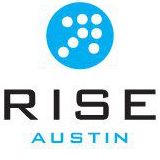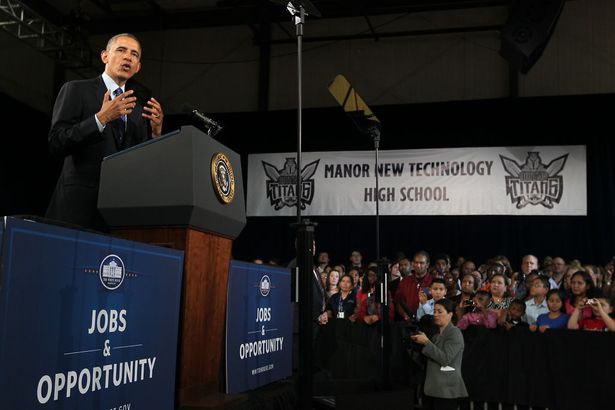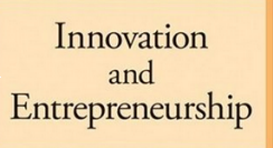RISE Austin kicked off yesterday and proves, once again, to be one of the pivotal events in Austin’s entrepreneurial economy. On the heels of President Obama’s visit to Austin, the timing of RISE is an intriguing contrast to the President’s goal of learning what makes Austin so incredible and successful. While he and the world are learning from us, we’re asking how do we learn from ourselves how to excel even more.
Article Highlights
Obama Visits Austin to Learn
“Through these jobs tours,” shared Bailey Bounds at AustinXL, “President Obama aims to learn what has helped make American businesses, schools and workers successful and use them as models to encourage Congress to support the idea that the middle class is the engine of economic growth.”
“People in Austin are doing something right and the rest of the country can learn from them,” remarked the President in a speech given at Manor New Tech High School. Evident of that traction was clear as Todd Park, United States Chief Technology Officer, pointed out during Obama’s visit that Austin leads the country in manufacturing and tech job growth – we’re attracting the employers and the resources at a healthier clip than ANYONE else. But is that proof that we’ve got it figured out – that we’re doing something right and the rest of the country can (should) learn from us? Is that what economic development is all about – more jobs? Are skilled resources the only name of the game?
Susanne Bowen, CEO of PeopleAdmin and chair of the Austin Technology Council’s Community Foundation, shared last week at ATC’s CEO Summit the fact that the technology skill pipeline in science, technology, engineering, and math (STEM) is critical to growth. In related news, Silicon Hills News‘s Laura Lorek reported that “Austin is expected to create 10,000 new high tech jobs by 2017 and 2,400 of those openings are for software developers,” according to an ATC survey. “But companies,” Bowen adds (and I’d add, entrepreneurs), “cannot continue to rely strictly on recruiting and importing that talent from other areas. Those are not sustainable, nor cost effective solutions to the challenge. So we need to grow our own talent here in central Texas.”
There’s a subtle and important turn of the phrase there that I hope you caught, a change in the wording that we explored here just a couple weeks ago. Skilled resources are in demand and indeed, what Austin has nailed and from which the country must learn, but what we really need is talent, and talent comes from experience through ongoing education beyond skills training.
Coincidentally, RISE week gives us all the ideal opportunity (funny, that’s what Obama’s sign in that photo says: Opportunity) to learn with the President; and that begs the question, what do we really need to learn? What is Austin doing right? And what can the rest of the country, the world, learn from Austin’s example? Let’s take a look.
RISE Up to Success
 I regret that I’m a couple days late in getting this post up; and have missed the opportunity to encourage you to look at some exceptional topics the last couple days.
I regret that I’m a couple days late in getting this post up; and have missed the opportunity to encourage you to look at some exceptional topics the last couple days.
The spark for my draft was more than a handful of incredible entrepreneurs in Austin asking how to make the most of the exceptional, and extensive, RISE agenda. Regardless, this post, my post, is more of an exploration of what I’d encourage more entrepreneurs to explore in their own development of their personal talents, than a guide to RISE. Those that know me can already predict where my suggestions are going to lead, Austin’s technical talent and thought leaders in innovation are capably creative, amazingly inventive, and capable – that technical capability and sophistication is what’s drawing so many to Austin. What we can still stand to learn, is how to scale, how to tap the capital we need to think big, and how to help the venture community to uncover the hidden gems in our community and feel confident in their investments in us.
What to Attend During RISE
The single most important talk to attend, the talk for which I’m hanging my head in sorrow for not getting this article up in time, was today; this one. Laura Kilcrease, Brett Hurt (is he still @BazaarBrett?), Michele Skelding, and Rick Timmons (whom I questioned linking to because he’s a Wildcat), with the City of Austin, discussing Angel and VC funding. Why? Because MONDAY (which I also missed *shame*), he affirmed that “Austin is still primarily a business to business or B2B town – dating back to the impact from the Tivoli days and now the days of Bazaarvoice, SolarWinds, Perficient, and Convio. That’s where the majority of startups focus their attention. But that’s not where the biggest money is.” (I’m paraphrasing as that’s how Silicon Hills News captured his sentiment. Brett contacted me to clarify this point that Silicon Hills News wasn’t complete on. The point he made at the session is that if you look at one of the most successful B2B companies in history, Salesforce.com, it is worth $26 billion. By contrast, one of the most successful B2C companies in history – Apple is worth $402 billion – 15 times that of Salesforce.com. It is great that HomeAway is worth $2.6 billion and is a huge B2C success for Austin as compared to the dot-com boom days where Austin struck out in this area. It would be nice to see more of these B2C successes, and perhaps that will be from people that eventually leave HomeAway and RetailMeNot to found their own B2C companies.
“I only want to work with people who are interested in going big.” says Hurt. “If I measure the second half of my life by impact, how will I measure impact? I measure it by how I help others and how many jobs they create. I don’t want to waste my time by working on projects that will have limited impact. If I can see a clear path where I can help them get to $100 million in revenue and then maybe to as much as $1 billion of revenue, those are the projects I’m interested in. There are companies that are thinking that way, about creating something well beyond their own abilities (such as to launch a small consulting business based on their individual skill set, or as I call them in my Lucky7 post about the state of tech entrepreneurship in Austin, stage-one entrepreneurs.”
Hurt went on to suggest that the Austin ecosystem is lacking people who want to change the world, not entrepreneurs, per se, but the venture capitalists who enable what the rest of of us make happen. Added Hurt, “If you’re just looking to flip a company, if the goal is just to enrich yourself, you’re not going to change the world. Maybe investors will get 3-to-5 X of their money. If the goal is really to build a big company, you’re going to need a lot of capital to do it.”
What’s your goal? From what do you want the President and the world to learn of Austin? Are we flipping returns or changing the world? How do we take skills and turn them into the talents that change the world??
So… where do we pick up fundraising from here?
First, let me say, damn it all if I didn’t miss a bunch… Bryan Menell’s talk on AngelList, Paul Ramirez on Angel Capital,
Amy Hagstrom Miller’s talk on how a lack of capital shouldn’t stop you, or Roberto Rondero de Mosier or Hall Martin on Crowdfunding. Why am I mentioning these talks even though we’ve missed them?? That very question is the reason: these are a few of the people who get it; from which to learn. Good news is, we’re not done yet and tomorrow, Wednesday, is a great place to start.
Got Funding? Tomorrow at 10 am, at the UT Administration Building, Josh Alexander, CEO of Toopher, tries to help answer that very question by pointing out that now, like never before, there are an incredible number of ways to get money. PLEASE don’t tell me you’ve only explored one possibility.
WHY had you best not focused on ONE fundraising channel? Thursday, Shari Wynne is pointing out the falsehoods about raising capital both (I hope), why you can’t and why you shouldn’t. Never consider one source, one approach, the right answer (a truism of everything you’re doing as an entrepreneur). Later Thursday, Raquel Valdez will help explain the various sources to capital while Matt Lyons will talk through strategies to going after the seed and angel financing so many need (and on which so many focus). It’s a toss up because they are at the same time… the various possibilities or the strategies to go after the conventional source. Cap your day with a traditional source out of left field – go after a grant: arguably the largest source of untapped capital available to startups.
And how does our RISE to funding cap off? With a “super panel” on Crowdfunding. A must attend; for if you don’t appreciate the way in which crowdfunding is going to change fundraising in Austin yet, you’ll soon learn, by being left behind.
Interesting… a synonym to RISE is to GROW
Having learned the role that capital plays, and how to get it if we need it, the real question every entrepreneur should be asking is how to grow. Not just acquire customers or sell more widgets, but how to truly scale. If our goal is to follow Obama’s plan to put the economy back to work (that is Obama’s plan isn’t it?), a successful venture, an exit or an acquisition, isn’t our goal here; we’re thinking big. As Hurt put it, “If I can see a clear path where I can help them get to $100 million in revenue and then maybe to as much as $1 billion of revenue, those are the projects I’m interested in.” How do get get to $1 billion?
First, again one we missed, if you don’t have mobile strategy, you don’t have a future. The discussion hosted by Guthrie Bunn Monday WAS a must attend because a mobile strategy has nothing to do with an iPhone app. In fact, if you are a startup built on an iPhone app… well… good luck. Rather, the point of the discussion is critical – you must know what the implications our of our increasingly mobile, hand-held based, society are on your business. We missed the talk at this point, but you can’t miss Guthrie, he’s good people.
Oh wait! I didn’t just miss one awesome talk, I missed the opportunity to point out an entire series. Jan Triplett, Monday, brought us Scalability Testing: How Far Can You Grow? and you best not even be in business for yourself if you don’t know the answer to that one. Tuesday, CEO of the Business Success Center, Triplett hosted talks on your Sales playbook AND how to scale not just nationally but internationally. Here’s the good news, where I failed to deliver a timely alert, you can always still track down smart people (I’ll leave you to figure out why the color of that text is different and the implications of clicking your mouse there0.
Jeez Paul, if we missed such good stuff, what can we learn about scale this week other than following you on twitter?? Great question. I’ll give you a minute to come back from twitter…

Why is this cool picture of Austin here? Because, as usual, I couldn’t stop writing and needed something to break up the text. And it’s a cool picture by John R. Rogers.
FIRST THING tomorrow, Michael Johnson is explaining how to leverage technology to accelerate business growth and shame on me for not getting him on my calendar as 1. we’re practically neighbors and 2. I’ve talked about that very subject here (why am I pointing out how incompetent I am at connecting with brilliant people in my own backyard?? Ah! Therein is the wisdom in this post: All you need to succeed BIG is right here in Austin).
Later in the day, Deborah Toodle covers Common Mistakes Entrepreneurs Under 30 Make and I’m going to encourage everyone under 60 to go to this session. First because those under 30 don’t yet know the mistakes they haven’t made and second because most over 30 don’t realize that the internet has completely changed the game and what you once learned no longer applies.
Ultimately, the point of this phase of the article is to help you figure out how to go big (or go home). On Friday, Adam Morehead is talking about building your organization for growth and it’s too bad that’s Friday because that’s really a foundational talk. What we want to explore is who you need to grow. As I’ve talked extensively about the need for Marketing, and who/where in Austin to turn, let’s look deeper at RISE (certainly, you can find more than enough about Marketing). Dean Bogues & Jeremy David start, in a sense, Thursday with a talk about building your business for maximum value from there check out Doug Bain‘s talk on your first Salesperson, “As a start-up founder, you do everything:” points out Bain, “R&D, PR, marketing, accounting, sales. Don’t make the mistake most start-ups do when they grow: failing to effectively transition your responsibilities. The sales transition can be the trickiest and riskiest of all.”
Follow Bain with Barker as partnerships are really the means to the greatest incremental validation, value, and traction for early entrepreneurs. Consider for a moment, forget marketing, forget sales, forget your first few customers… what would it mean to clinch that key partner that changes everything for your business? Ask Bob.
How might you capture all of this intelligence, this experience, in one swoop? Thursday, Joel Trammell is sharing 10 steps to a 9 figure exit. Here’s why that talk matters: it isn’t the 10 steps – there is no roadmap to success – it’s the 9 figures. Think big. Trammell discusses in particular, the importance of being world-class in every department – from HR to finance to sales. That’s not about skills, that’s about talent. Let’s learn together how to foster that talent.
At the end of this week, I hope you learn only one thing, if anything. That the name of RISE is all you need to plant in the back of your mind as you venture forth. Never settle. Never give up. Never stop learning. Rise to the occasion, the opportunity you have an entrepreneur and do great things.







